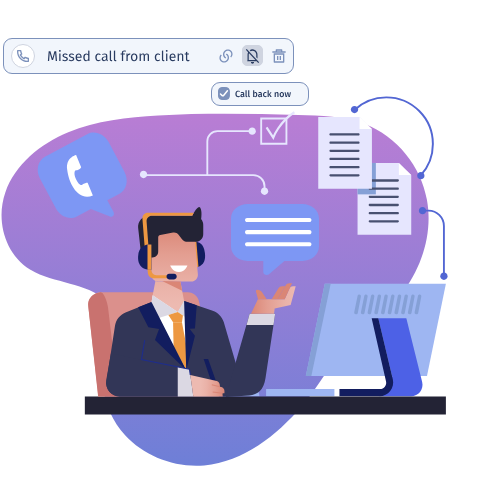What is ERP?
![]()
Introduction to ERP (Enterprise Resource Planning)
ERP, or Enterprise Resource Planning, is a comprehensive software system that integrates various business functions—such as sales, cash flow, inventory management, expense and cost tracking, production, accounting, reporting, customer support, and process management—into one unified platform.
Traditionally used by large corporations, ERP systems now also cater to the needs of small and medium-sized businesses ( SMBs), providing streamlined workflows, enhanced data visibility, and efficient management across all essential operations.
What is ERP Software?
ERP software is designed to manage daily business operations, from finance to human resources, within a single, centralized solution. By connecting data and processes across departments, an ERP system reduces manual work, minimizes errors, and improves collaboration across teams.
It can be referred to as the “single source of truth” for a company. It is made up of modules (applications) that are tied together in a shared database. This enables data to flow freely between them, eliminating the possibility of duplicate entries. This also automates manual tasks and processes to streamline productivity. Discover Composity's ERP Solutions to see how our adaptable software can benefit your business.
How Does an ERP Work?
ERP systems work by integrating core business processes into modules that can communicate seamlessly with one another. For example, an ERP might have separate modules for inventory, sales, finance, and customer management.
When a sale is made, the ERP updates inventory and accounting automatically, providing real-time information to decision-makers. This level of automation and synchronization helps eliminate silos, allowing data to flow smoothly across all areas of the business.
Key Features of an ERP Solution
ERP systems are designed to support small and medium-sized businesses with a unified platform that simplifies and streamlines essential operations. By integrating key functions across departments, an ERP solution helps businesses run more efficiently, reducing costs and enhancing productivity.
With a wide range of customizable features, ERP systems can be tailored to meet the specific needs of your business, enabling growth and flexibility as you expand.
Explore the core features that make ERP solutions a valuable asset for any growing business.
|
|
|
|
|
|
|
|
|
|
Benefits of Using an ERP for Small and Medium-Sized Businesses
Implementing an ERP system can be transformative for small and medium-sized businesses,enabling them to operate more efficiently and stay competitive.
Below are some of the key advantages that an ERP system brings, empowering businesses to streamline processes, improve accuracy, and support growth.
Streamlined OperationsBy consolidating various business tools into one system, an ERP reduces redundancy and increases efficiency across departments. | |
Improved Data Accuracy and AccessibilityWith a centralized data hub, teams can access accurate information in real-time, leading to better decision-making and quicker responses. | |
| Enhanced ProductivityAutomated workflows reduce repetitive tasks, freeing up employees’ time for high-value work. |
ScalabilityA flexible ERP system is designed to grow with your business, adapting to new requirements as you expand. | |
Lower Operational CostsBy reducing manual processes and consolidating software needs, an ERP helps cut costs associated with inefficiency and multiple systems, allowing businesses to allocate resources more strategically. | |
Better Customer ManagementAccess to customer insights and history allows for personalized service and better relationship management.> |
|
ERP Implementation Process
Implementing an ERP system is a vital step that involves planning, configuring the software to fit business needs, migrating data, and training staff. A successful implementation ensures that the ERP solution integrates seamlessly with existing workflows, maximizing its effectiveness from day one. With careful coordination and support, the process can lead to significant improvements in productivity and data accuracy.
For more details on how to implement an ERP, learn about the Composity process here .
Can Small Businesses Use an ERP?
While ERPs were once only accessible to large corporations, adaptable ERP solutions like Composity are designed specifically for small and medium-sized businesses.
These systems are customizable and flexible ,allowing SMBs to pick the features they need and grow into additional functionality over time.
Today even if your business is small you can throw away the endless disconnected spreadsheets and applications and implement an ERP software. The business suits are getting even more user-friendly and affordable .
Using a SaaS (software as a service) solution , SMEs can have the same advantages that ERP systems provide to larger enterprises. Cloud ERP offers quick implementation, flexibility and supports you through the changing business needs.
Composity offers cloud ERP for small and midsize companies to meet your every business need.
Start Today
FAQ
What does ERP stand for, and what does it do?
ERP stands for Enterprise Resource Planning. It’s a type of software that integrates and manages core business processes in a single system, helping companies improve efficiency, data accuracy, and collaboration across departments.
What are the main benefits of using an ERP system?
Key benefits include streamlined operations, improved data accuracy, increased productivity, scalability for business growth, lower operational costs, and enhanced customer management.
Is an ERP system suitable for small businesses?
Yes, ERP systems can be an excellent fit for small and medium-sized businesses. They offer the functionality of larger ERP systems but are often customizable and scalable, allowing businesses to select only the features they need. As your business grows, an ERP can easily expand to meet new demands, making it a cost-effective solution for long-term growth.
How secure is my business data with an ERP?
Data security is a top priority with modern ERP systems. Advanced encryption and data protection protocols are used to keep your business information safe and compliant with industry standards, ensuring that sensitive data remains protected against unauthorized access.

